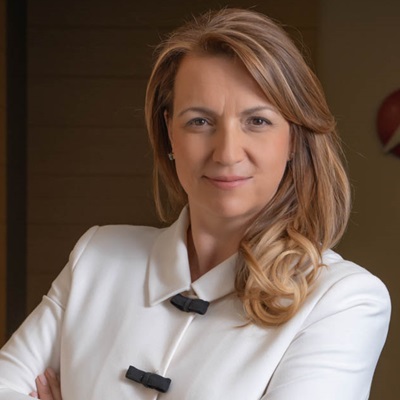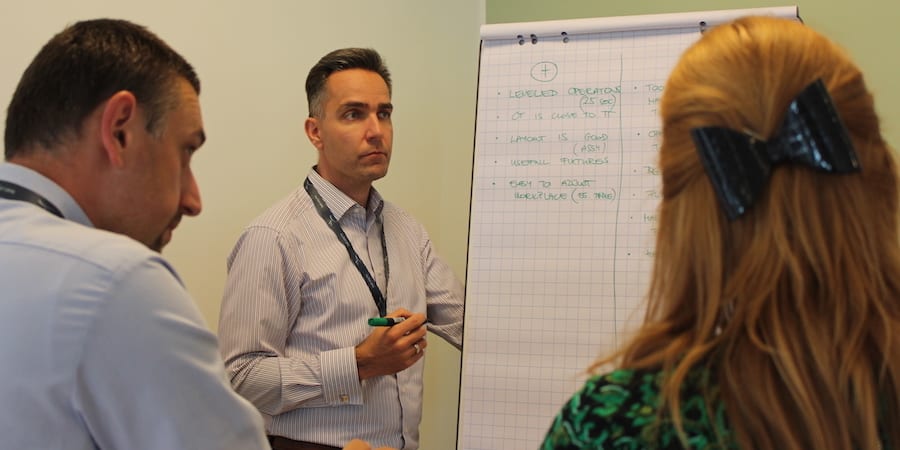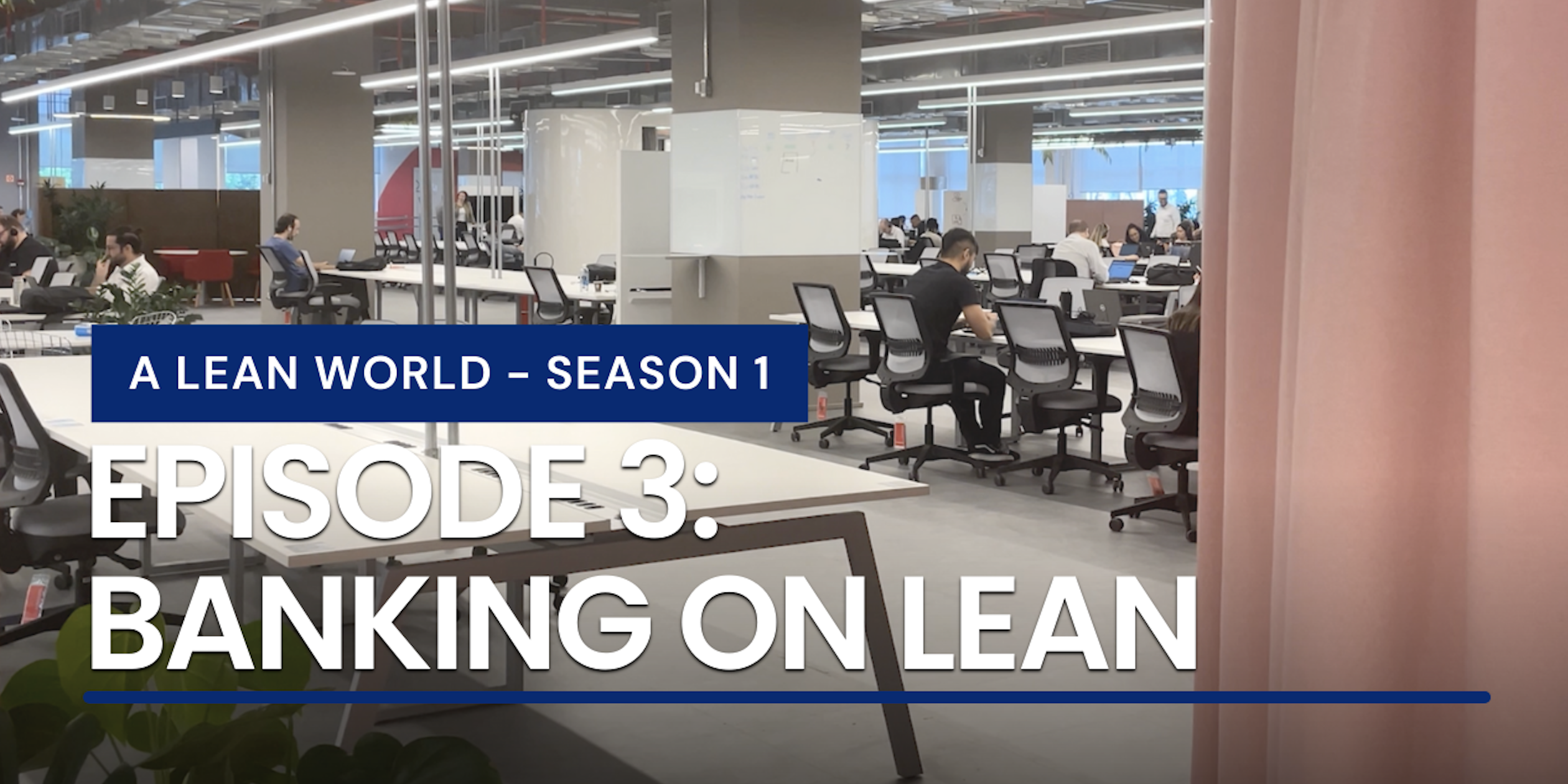
Inside UniCredit Bulgaria’s Lean Journey
INTERVIEW – In the face of rapid change, UniCredit Bulbank embedded Lean Thinking to simplify work and empower front-line innovation, proving leadership thrives on teamwork, continuous improvement, and adaptable processes.
Interviewee: Tsvetanka Mintcheva, Chairwoman of the MB and CEO at UniCredit Bulbank
Roberto Priolo: What are the biggest challenges that the banking sector is facing right now?
Tsvetanka Mintcheva: It's a great question. The challenges we face in banking are part of a much broader transformation happening across all industries. We’re in a period of incredibly rapid, exponential change. This transformation isn’t only about technology (beyond just AI), although that’s a major driver. It’s also about how companies respond to evolving business models, regulatory pressures, and customer expectations.
Digitalization is one key aspect. Once something is digitized, it begins behaving like software. Banking started this journey years ago, simplifying customer experiences and creating digital sales channels. Now we must integrate newer technologies without overspending and while remaining sustainable. But technology alone doesn’t transform a company – we’ve seen massive investments in online platforms that failed to deliver real impact.
We’re also affected by geopolitics, supply chain shifts, strict regulations like GDPR, and data security. Data is often called liquid gold, but for banks, trust is our foundation. Protecting that data is not just compliance – it’s existential. And we face questions about competitiveness: can European banks compete with major players from the US or China in a tech-driven world? These are big-picture challenges we constantly evaluate.
RP: Given all of these challenges, how does Lean fit into the picture for UniCredit? When was the strategic decision made to go down this route?
TM: For me, Lean feels like a very natural evolution. I've been with the company for 20 years, and I’ve seen many of these principles slowly take root. What matters now is that UniCredit – especially in Bulgaria – is among the most efficient banks in the region. Lean plays a critical role in helping us stay agile in this period of great shifts.
We don’t wait for crises to force change; we invest in transformation while we’re still performing well. Lean helps us simplify first, then digitalize. You can’t digitalize a broken process and expect good results.
We have a strong, top-down commitment to simplification. In Bulgaria, we have around 70 trained lean practitioners, including two Black Belts, and many more across the group. While Lean may not drive every initiative at Unicredit, it’s deeply embedded in our strategic framework.
RP: Can you tell us about your suggestion system?
TM: It’s called the "Keep It Simple" program here in Bulgaria. It’s our local initiative for gathering improvement ideas from across the organization. Everyone can contribute – through online platforms, face-to-face, or through internal communications. We have a dedicated team and system to evaluate the ideas, prioritize them, and escalate when needed.
The management team reviews the suggestions monthly, and we allocate resources to the highest-priority ones. One example is our work on the Know Your Customer (KYC) process – periodically reviewing all customer files. Previously, this was time-consuming and manual. We simplified it using mobile banking, pre-filled data, and automation. In the first year, we digitalized 50% of KYC processes. That freed up front-line staff for more value-added work and reduced customer frustration.
RP: Does the suggestions system reflect a belief that transformation happens through individual contributions on the front line?
TM: Absolutely. Empowerment is one of our core beliefs. I manage the country-level strategy, but the same principle applies to front-office staff. We create a central framework – a set of rules for the game – and empower our people to act and own what they do. That’s where transformation really happens. It translates directly into better business results.
RP: What tips do you have for organizations interested in transforming based on the UniCredit experience?
TM: First, you need to involve everyone from the start, beginning with top executives (top-down direction is necessary, but you need full engagement at all levels). Second, you need to build a clear framework, assigning ownership for every process (and this is where our suggestions system comes into play). Third is providing training, so that people know what you are talking about (for instance, we provide pocket guides helping people understand lean tools). You also have to stimulate initiative and reward the best. Finally, there is idea of spreading knowledge and ideas.
Additionally, it’s important to remember that a lean transformation never really ends. And, in my experience, it’s also worth knowing that sometimes ideas that didn’t make sense five years ago become relevant today. Like fashion, what was once old becomes new again. Keep track of those ideas – they might be the right fit later.
RP: You won an award for Manager of the Year award in 2013. That begs the question: what makes a good manager and, therefore, a good leader?
TM: Easy… a good team! That’s the foundation. Management and leadership are team sports. No one rises alone. And this is a core belief of Lean Thinking.
THE INTERVIEWEE

Read more


CASE STUDY – An insurance company in São Paulo is experiencing a complete turnaround driven by a very capable Lean Office that understands its role is to gradually make people autonomous.


ARTICLE - A-ha moments... we have all had one at least. In this personal account, the author reflects on what his own experience has taught him about changing our mindset and being stuck in our ways.


GETTING TO KNOW US – For our second interview with LGN directors, we travel to Hungary to meet the President of our affiliate institute there. He tells us his country’s need for good workers and how lean can make the difference.


FEATURE – In this article, Joakim Hillberg shares his experience teaching trainers how to run lean games and some hints on how to practically and effectively coach game participants.
Read more


WEB SERIES – Episode 3 of our docuseries on lean in Brazil takes us to the second largest bank in the country. Learn how Bradesco is striving to improve its processes to provide more value to its customers using Lean Thinking.


FEATURE – What a Brazilian bank has learned from its first few steps in adopting hoshin kanri through structured problem solving and people development.


CASE STUDY – Over the past few years, DBS Bank in Singapore has undergone an extraordinary turnaround inspired by lean. Here, the COO explains how the company has become the world's "best digital bank".


FEATURE – The banking sector is floundering in the face of heavy regulation and increased competition from fintechs. So what can banks do? The author suggests they embrace lean IT in order to change their ways.

